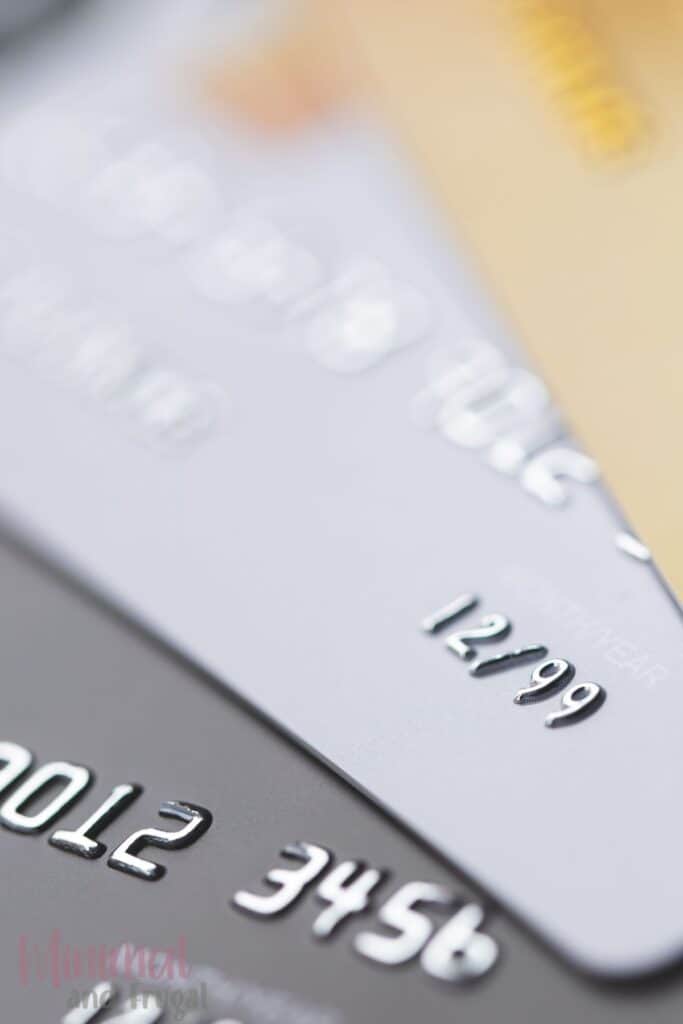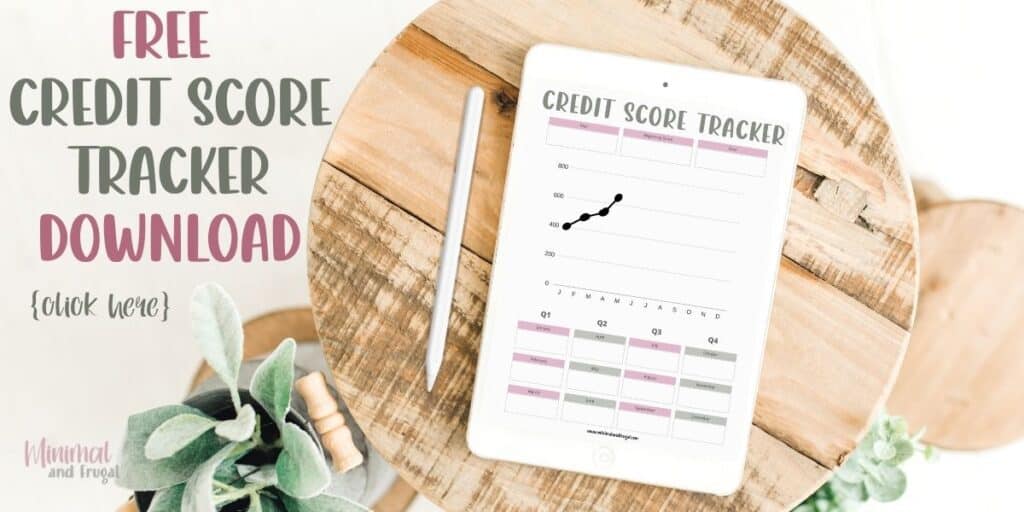Understanding your credit is the first step to raising your credit score, paying off debt, and finding financial peace. This article covers the basics of credit along with tips for increasing your score.

What is credit?
Credit is the word used for the trust that lets people or businesses give things to other people or businesses with an agreement that they will repay later on, almost always with interest. This makes it beneficial for lenders as well as borrowers.
Every person over the age of 18 has credit – calculated into a credit score – and it is good practice to make decisions to keep your credit score high, even if you do not plan to use it.
A higher credit score indicates that a person is more likely to pay the agreement back on the agreed-upon terms. A lower credit score indicates that a person may struggle to pay it back or that a person does not have enough collected history data with money management to be fully trusted.
Banks and credit unions are usually the most popular type of institution that gives loans based on credit, but you'll notice that even some housing applications require a credit check. This, again, speaks to the level of trust or likelihood that the person will be able to fulfill their financial obligations based on prior history.
How is credit checked?
Your credit can be checked by pulling a credit report. Your credit report is essentially a record of past transactions – how you have borrowed and repaid money in the past. Your credit history, or credit report, consists of your credit score as well as any information about your borrowing and repayment activity that may be contained in public records.
The three major national credit bureaus collect and maintain this information for financial institutions so they can decide whether to offer you credit. The three bureaus are TransUnion, Equifax, and Experian.
What is a credit score?
A credit score is calculated based on the information listed in your credit report. Credit scores are used by lenders to predict how likely you are to repay money that you borrow. The higher your score, the more likely they believe you are to pay back loans on time and in full. Basically – the higher your score, the more trustworthy you are with your financial responsibilities.
Using free credit score sites like Credit Karma will help you understand why your credit score is what it is, and how to improve it. However, they aren’t always accurate. Once a year, get an accurate credit report by ordering your free annual credit report. This will give you the actual breakdown of your credit as well as your FICO score. Lenders use your FICO score to determine if they want to work with you or not.

How are FICO scores calculated?
Your FICO score is determined by both positive and negative factors on your credit report. Increasing your credit can take some time, but it’s a pretty straightforward process once you understand the basics.
According to FICO, marital status, employment, age, child/family obligations, and your salary do not contribute to the determination of your score. That doesn’t mean your lender won’t include these things in their decision of whether or not to extend credit, but your credit is not factored by them.
Five Credit Factors
What makes your credit score go up? What can make it go down? How long does it take to repair your credit? These are all great questions, and most can be answered by learning more about the five factors that go into determining your credit score.
FICO credit score factors:
- 35% = based on payment history
- 30% = based on amounts currently owed
- 15% = based on credit history
- 10% = based on credit mix
- 10% = based on new credit
Payment history
The most crucial and heavily weighted factor in determining your credit score is your payment history. In fact, it accounts for up to 35% of your credit score. This means if you’ve been behind on even a few payments, your credit score has probably gone down significantly.
This is also why it is important to monitor your credit score and make sure there are not any missed payments or that all payments are properly being reported. If you miss a payment but pay every other payment on time, it may still show that every payment is as late as it is crediting the past balance.
To avoid this, make sure that you’re keeping track of your bills and when they’re due. Always do your best to pay on time if not early. Setting up automatic bill pay is a great way to make sure your bills are paid on time every month.
Amounts owed
The next largest factor in determining your credit score is the amounts owed. This doesn’t necessarily mean the monetary value of your debts, but how much of your credit you’re currently using. This can also be referred to as “credit utilization.”
This means if you have credit cards with limits totaling $10,000 and you’re utilizing $7,000 of those limits, you’re using (or “utilizing”) 70% of your credit. For best results, you want to stay under 15% utilization overall. Start paying those cards off if your utilization is over 15%.
Set balance alerts on all of your credit cards to make sure you realize when your credit utilization creeps up. This way you’ll also be more mindful when you’re using credit to pay for something.
Length of credit history
While the length of credit history only accounts for 15% of your credit score, it can be the determining factor between a 750 score and an 800 score. Keeping your cards open (even if you don't keep a balance on them) will keep the clock ticking towards your credit history length.
Additionally, opening a new card just to save a percentage on one sale is often not a good strategy in the long run as a new credit card can bring your average credit length down.
Credit mix
A credit mix means you have a varied combination of credit cards, retail accounts, mortgage loans, etc. You don’t have to carry all of these, but 10% of your credit score is determined by your credit mix.
There are two main types of credit – revolving credit which includes credit cards, sore cards, and personal lines of credit. The second type is installment loans which include mortgages and car payments.
Revolving Credit amounts tend to vary month to money while installment loans are generally the same amount each month. How you manage paying both of these types of balances is an important aspect of your credit score.

New credit applications
If you’ve opened – or even just attempted to open – several new accounts in a short amount of time, that can make lenders see you as a higher-risk borrower. Try not to open more accounts than are necessary to establish and grow your credit.
Plus, every time you open a new card or secure a new loan, your credit history length (average) goes down. While this is usually temporary, it can affect your ability to secure funding during the time when it is impacting your score.
Types of credit
There are two types of accounts that impact your credit score: revolving accounts and installment accounts. Credit cards and lines of credit are revolving accounts. Student loans, car loans, personal loans, and mortgages are all installment accounts.
Don’t worry about increasing your limit over and over again. Studies show that a $500 credit card can have as big of an impact as a $20,000 loan. While increasing your credit limit can help you keep your utilization lower, you don’t have to stress if your limits stay low – that’s perfectly normal while building credit.
Quick Tips to Increase Your Credit Score
Now that you understand how credit scores are calculated, there are a few quick things you can do to bring your score up quickly.
- Pay all bills on time – make absolutely sure that your bills are paid on time every single month.
- Bring down utilization – if possible, pay more than the minimum amount owed to get your utilization down as low as possible.
- Get a secured credit card – even a small balance secured credit card help bring up your credit score.
- Keep credit cards active – once you pay off a credit card, make sure to use it every few months to avoid the credit card company from closing the account due to inactivity.
- Request a higher credit limit – but then do not use it! This is a strategy to impact your utilization amount, not an opportunity to rack up more debt.
Credit Score Tracker Free Download
Grab the free Credit Score Tracker download to keep in your digital planner or print it out to keep on your desk and keep your credit top of mind.
It may seem like a lot to comprehend when you’re looking at all of the factors that make up your credit score, but it’s pretty simple once you get the hang of it. Missing payments, utilizing too much of your available credit, opening multiple new accounts in a short period of time, and defaulting on accounts can all significantly lower your credit score.
Stay on top of your score by using your free annual credit report, and sites like Credit Karma.